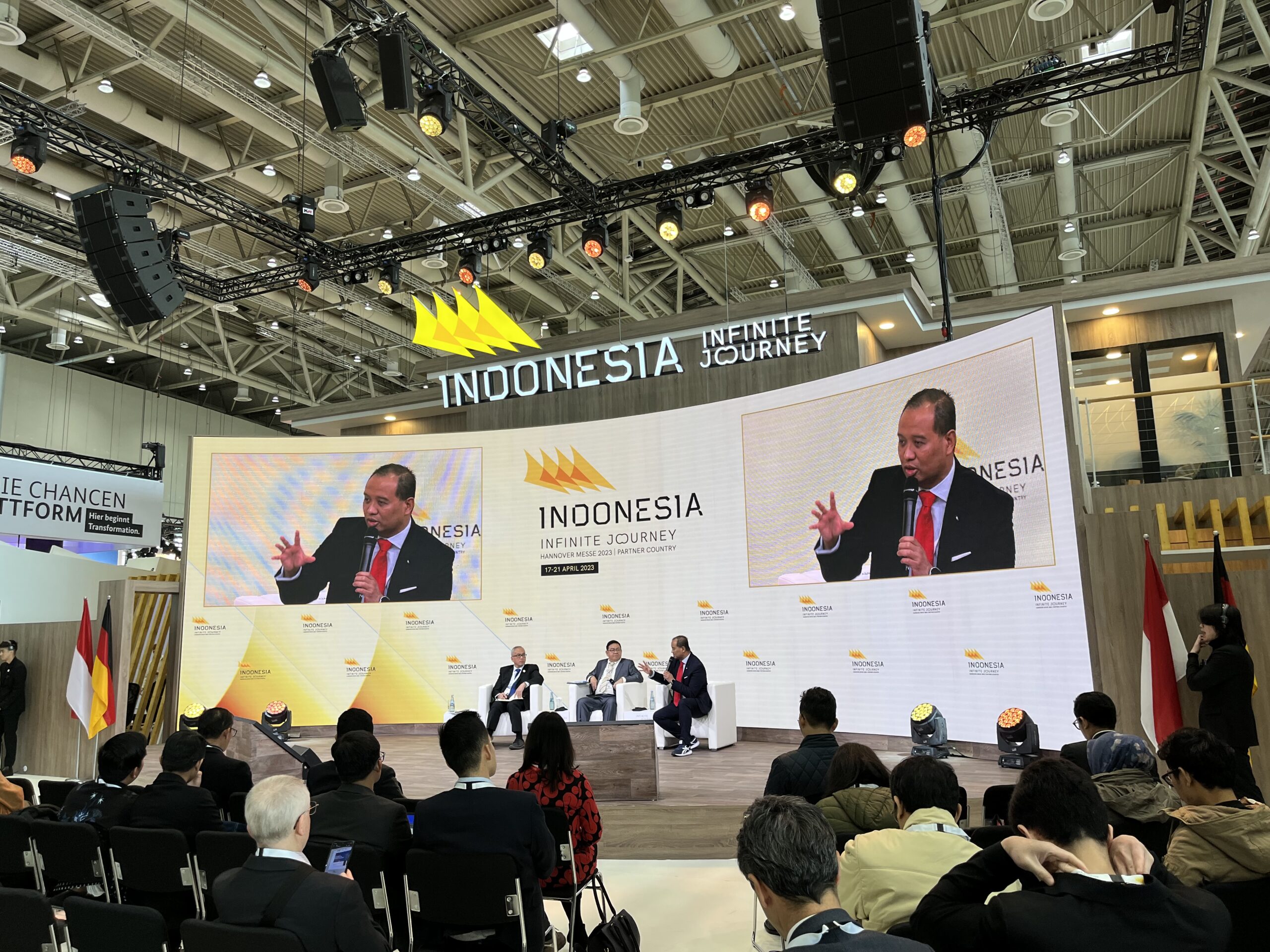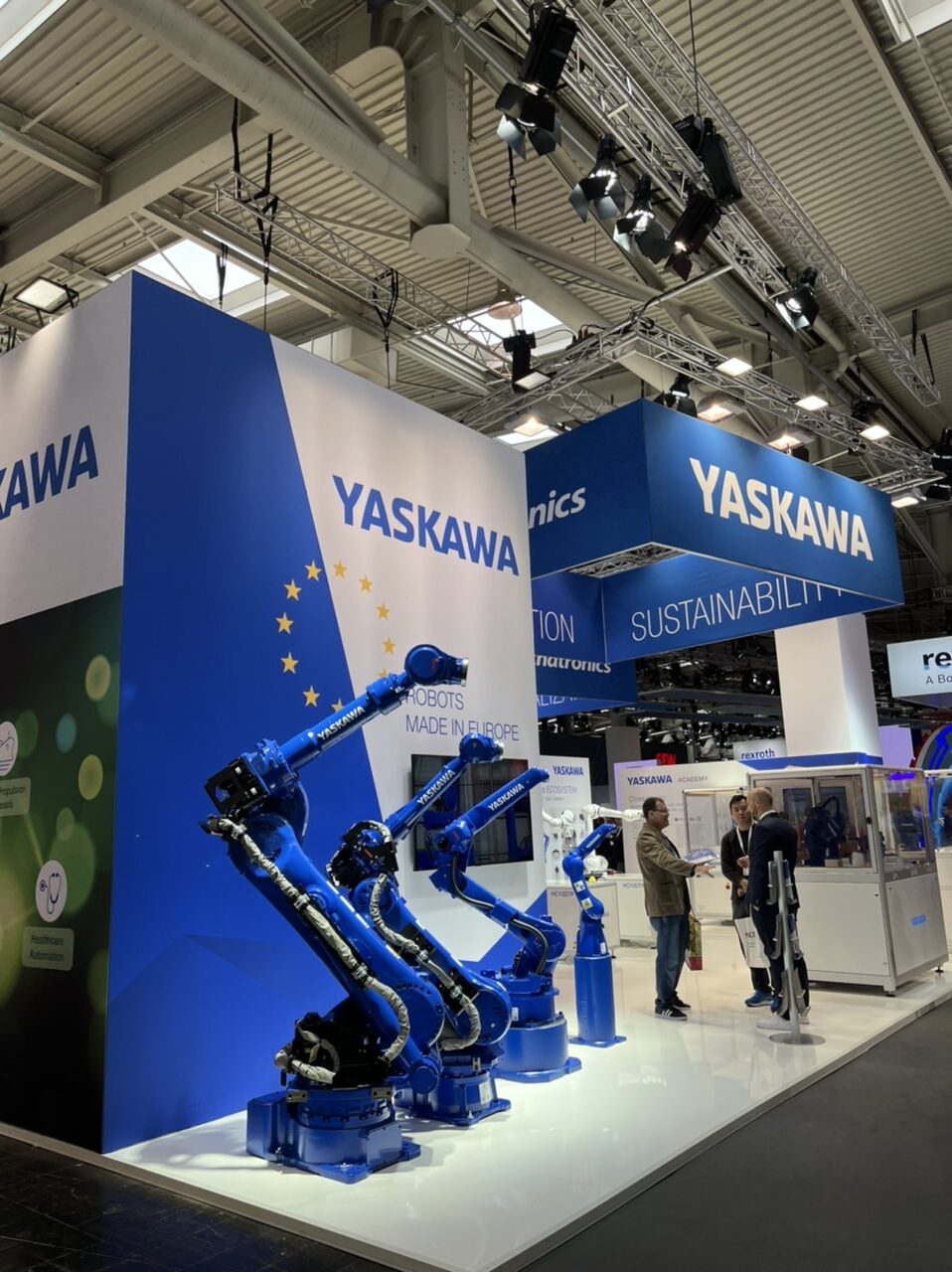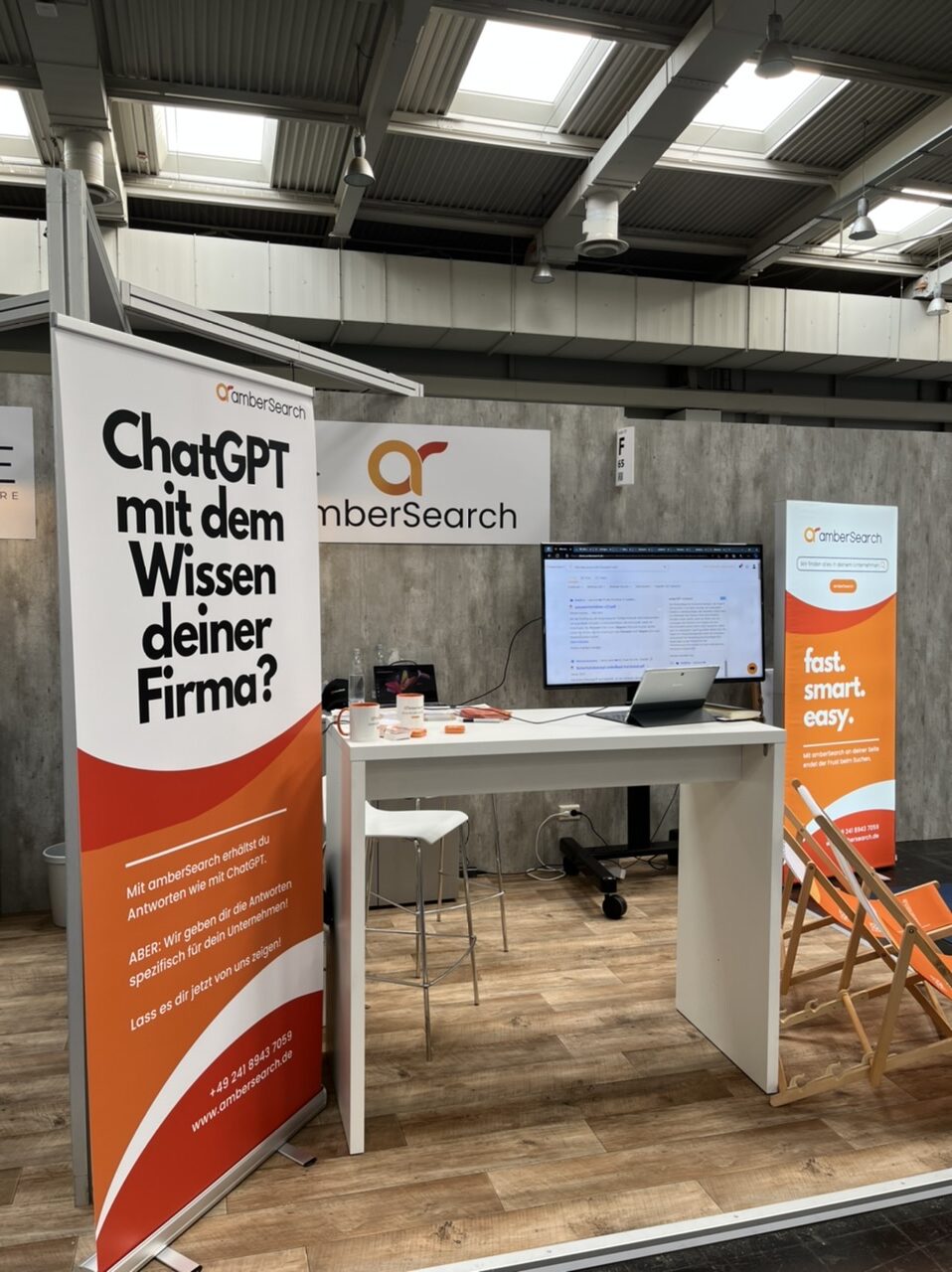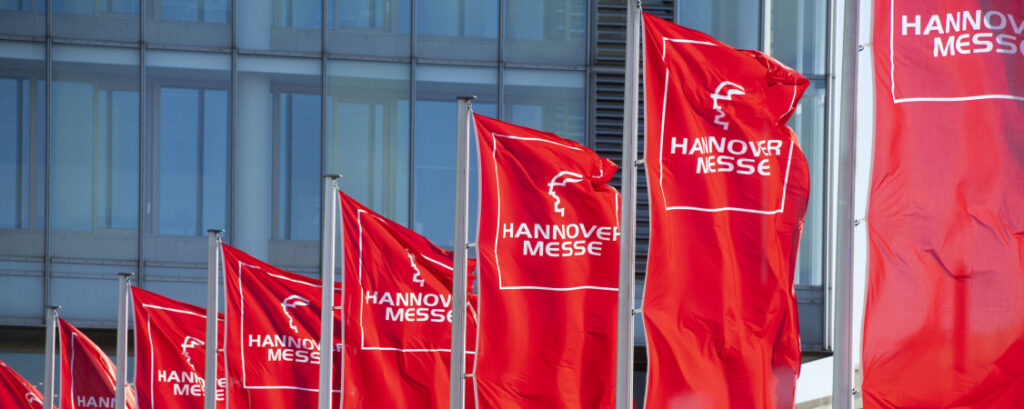As you all know, at CryptoPlan we believe it’s essential to stay ahead of the curve, especially when it comes to emerging technologies and industries. That’s why we’re excited to share our review of the recent Hannover Messe event, the world’s leading trade fair for industrial technology. We’re always on the lookout for the latest trends and advancements, and this year’s event did not disappoint. In this review, we’ll explore some of the most exciting topics and exhibits from Hannover Messe and provide our perspective on what they mean for the future of industry.
As you all know, at CryptoPlan we believe it’s essential to stay ahead of the curve, especially when it comes to emerging technologies and industries. That’s why we’re excited to share our review of the recent Hannover Messe event, the world’s leading trade fair for industrial technology. We’re always on the lookout for the latest trends and advancements, and this year’s event did not disappoint. In this review, we’ll explore some of the most exciting topics and exhibits from Hannover Messe and provide our perspective on what they mean for the future of industry.
What is Hannover Messe?
Hannover Messe is one of the world’s largest trade fairs for industrial technology, held annually in Hannover, Germany. The event is organized by Deutsche Messe AG and attracts exhibitors and visitors from all over the world. Featuring a diverse range of exhibits covering topics such as automation, energy, digitalization and more, it is a hub for industrial technology and allows companies to network with other businesses and industry experts. Over five packed days, it features a range of informative presentations, keynote speeches, and panel discussions from leading experts in the field, as well as hosting various competitions and awards ceremonies, recognizing the most innovative and groundbreaking products and solutions.
Hannover Messe has an interesting history that dates back to 1947. The event was first launched to help revive Germany’s post-war economy by showcasing its industrial capabilities and promoting its exports to the world. The inaugural event, then called the Exportmesse, attracted over 1,000 exhibitors and 100,000 visitors. Throughout its history, Hannover Messe has been at the forefront of technological innovation. It has served as a platform for numerous groundbreaking technologies, such as the first-ever industrial robot in 1971 and the first-ever energy-saving light bulb in 1995.
Today, Hannover Messe is considered one of the most important events in the industrial technology sector, attracting over 215,000 visitors and over 6,500 exhibitors from around the world, making it a truly global affair.
The event continues to be a key driver of innovation and growth in the industry, providing a platform for companies to showcase their latest products and solutions and driving forward digital transformation across multiple sectors.
Hannover Messe 2023
The world is currently facing significant challenges, including climate change, labour shortages, rising energy prices and disrupted supply chains that are impacting businesses worldwide. All this means it’s more important than ever to find innovative solutions that can help us overcome these issues and build a sustainable future. Against this backdrop, Hannover Messe 2023 brought together 4,000 companies from the mechanical engineering, electrical and digital industries and the energy sector, to showcase the latest technologies and solutions for connected and climate-neutral industries.
Over five days, Hannover Messe offered a diverse range of exhibits, presentations, and networking opportunities for participants. The main features of the event included:
Exhibits: The event featured over 20 different technology areas covering topics such as automation, energy, digitalization, and more. Thousands of exhibitors showcased their latest products and solutions, allowing visitors to get hands-on experience and learn about the latest technologies in the industry. Companies also exhibited online via the website, which included presentations on a number of topics.
Keynote speeches: The event hosted keynote speeches from leading experts in the industry, providing insights into the latest trends and developments. These speeches covered a wide range of topics, from the digital transformation of the industry to the future of sustainable energy.
Panel discussions: Hannover Messe also offered various panel discussions, bringing together industry leaders and experts to discuss the latest challenges and opportunities in the industry. These discussions provided valuable insights into key issues such as cybersecurity, workforce development, and sustainable manufacturing.
Competitions and awards: The event hosts various competitions and awards ceremonies, recognizing the most innovative and groundbreaking products and solutions. These awards highlight the latest technologies and provide valuable exposure for companies.
Networking opportunities: Hannover Messe provides a unique opportunity for participants to network with industry leaders, experts, and peers. The event featured various networking events, including receptions, lunches, and other social events, allowing participants to connect and build relationships.
Industry trends for 2023
The event was specifically tailored to offer practical responses to the challenges faced in today’s rapidly evolving industrial landscape, and focused on five key topics: AI and machine learning, energy management, carbon-neutral production, ‘Industrie 4.0’ and hydrogen and fuel cells.
AI and machine learning
This theme explored the integration of AI models across industries, the role of AI in saving energy, and the importance of dependable AI. The challenge of integrating AI models into existing systems and the need for dependable AI was discussed, with the focus on the future of industrial applications lying in the combination of mathematics, statistics, and neural networks. The possibility of making data eligible for balance sheet recognition to facilitate financing for AI projects is also explored.
Exhibitors on the topic included Dell Technologies, FabOS, ADVANTECH EUROPE, Data Lighthouse, Siemans, Hewlett Packard Enterprise and Bosch Manufacturing Solutions.
Energy management
The Energy Management theme at Hannover Messe focused on the need for greater efficiency and transparency in energy usage. With energy prices on the rise and supply chains faltering, companies are increasingly looking to set up energy management systems to record and analyse energy flows, develop ideas for improvement, and evaluate economic viability. Energy-saving solutions such as frequency converters and connected machines are also gaining importance, with the potential to reduce energy consumption by 30 to 5%. Additionally, new business models such as peak shaving and the integration of electric vehicles into production are being developed to address energy challenges.
Over 800 companies focused on this topic, including AEG, APEX Group, Cassia Networks, Advent and Loop Energy.
Carbon-neutral production
Companies around the world are under pressure to reduce their carbon footprint and cut CO2 emissions. There are various approaches to decarbonization, including electrification of process heat, the switch to hydrogen, and increased use of biomass. Aside from the clear importance of committing to climate protection as an ethical obligation, switching to carbon-neutral production is also cost-effective and can be achieved by implementing energy conservation measures and covering energy requirements with renewable energy sources. Offsetting residual energy demand can be achieved by investing in certified climate projects. Visitors were able to learn more how to transition to climate-friendly production through a range of informative presentations.
Contributors in this area included ARNIKA CO Makina, BTB Transformers, Camozzi Automation, ALFA PLASTIC, CAPRONI, and Aicep Portugal Global.
Industrie 4.0
Industrie 4.0 is an umbrella brand for the digitization of industrial processes, which celebrated its premiere at Hannover Messe more than a decade ago. The concept promotes networked machines, sensor technology, data, information, and new business models, requiring companies to be present on their own platforms and collaborate in new constellations. As we look to the next phase of digitalization with machine learning, IIoT, 3D printing, and 5G, the challenge for Industrie 4.0 is to serve its vision in small portions with adaptable use cases, providing solutions to the challenges faced by small and medium-sized enterprises.
Exhibitors on the topic included Amazon Web Services, Aicep Portugal Global, Bosch Rexroth, Dunkermotoren, Autodesk and Baumüller Nürnberg.
Hydrogen and fuel cells
Hydrogen is a key topic at Hannover Messe, with over 500 companies presenting solutions for the use of hydrogen in industry. Europe aims to replace grey hydrogen by 2030, but there is a desire for even more green hydrogen to substitute fossil fuels. Offshore wind energy plays a crucial role in green hydrogen production, and many countries have ideal conditions for it. Transporting hydrogen via pipeline is efficient and economical over long distances. However, issues relating to hydrogen clusters, supply chains and technical adaptations for existing pipelines mean innovation in this sector will be crucial in the years to come.
Exhibitors on the topic included HYPOS – Hydrogen Power Storage, Resato Hydrogen Technology, Maximator Hydrogen, HELION Hydrogen Power, PERIC Hydrogen Technologies, Hiperbaric Hydrogen Compression, Green Hydrogen Systems, Hydo Hydrogen Technology, GF Hydrogen, Tyczka Hydrogen and CALVERA HYDROGEN.

Topics @Hannover Messe
With such a range of organisations attending, it’s no surprise the fair covered a broad range of topics. From additive manufacturing and automation to digital platforms and logistics, the rapid changes and disruptions affecting the industrial sector today were explored across multiple contexts, showcasing the latest advancements in research and development, as well as the latest products and solutions.
Additive Manufacturing: 3D printing and other additive manufacturing technologies are being increasingly used in industrial production, thanks to their ability to produce complex and intricate designs. These technologies are revolutionizing manufacturing processes and opening up new opportunities for customization and waste reduction.
Automation & Sensor Technology: The use of automation and sensor technologies is helping to improve efficiency, quality, and safety in manufacturing processes across various industries. These technologies are enabling companies to automate routine tasks, collect real-time data, and optimize production processes, leading to better product quality, lower costs, and safer working conditions.
Carbon-neutral Production: The development and implementation of sustainable production processes that reduce or eliminate carbon emissions is the most important issue of our time. Achieving carbon neutrality requires a holistic approach that involves a combination of process optimization, renewable energy, and circular economy that not only lead to improved environmental credentials but also cost savings and new revenue streams.
Cloud & Infrastructure: The use of cloud computing and related infrastructure technologies is becoming increasingly important for industrial companies looking to streamline their operations and boost productivity. Cloud-based technologies provide companies with the flexibility, scalability, and cost-effectiveness needed to manage complex data sets, increase efficiency, and integrate new technologies.
Compressed Air & Vacuum: Compressed air and vacuum technologies play a vital role in many industrial processes. These technologies are used for a wide range of applications, including power tools, packaging, and material handling, and can help companies reduce energy consumption, increase productivity, and lower maintenance costs.
Digital Energy & Energy Efficiency: Digital technologies are being used to improve energy efficiency and reduce energy consumption in industrial applications. These technologies include real-time monitoring, predictive maintenance, and advanced energy management systems, which can help companies optimize energy usage, reduce costs, and meet sustainability goals.
Digital Platforms: Digital platforms are becoming a popular way for industrial companies to connect with their suppliers and customers, streamline their supply chains, and improve collaboration. These platforms provide companies with new opportunities to create value, innovate, and grow their businesses by enabling real-time data exchange, process optimization, and the development of new business models.
Drive Technology: The design and implementation of advanced drive technologies, including electric and hybrid drives, is helping companies reduce energy consumption, increase reliability, and optimize production processes, leading to better product quality, lower costs, and improved environmental performance.
E-Mobility & Charging Infrastructure: The development and implementation of electric mobility solutions, including charging infrastructure and related technologies, is a key area of development for many companies. These technologies are critical for reducing emissions, improving air quality, and creating new business opportunities in the transportation sector.
Engineering & Office-Software: Software tools, including engineering and office software, are critical for managing and optimizing industrial processes. These tools can help companies automate routine tasks, improve collaboration, and optimize systems and processes, leading to better product quality, lower costs, and improved efficiency.
Fluid Power: The use of hydraulic and pneumatic technologies is vital for many industrial applications, including heavy machinery, construction equipment, and factory automation, and can help companies reduce energy consumption, increase productivity, and lower maintenance costs.
Future of Work: Technological advancements are impacting every aspect of the future of work, including changes in work environments, skills requirements, and job roles. These advancements are driving new opportunities for innovation, collaboration, and automation, and are changing the nature of work and the skills needed to succeed in the modern economy.
Handling & Assembly: The use of handling and assembly technologies is critical for industrial production. These technologies help companies improve efficiency, reduce errors, and optimize workflows, leading to better product quality, lower costs, and improved working conditions.
Hydrogen & Fuel Cells: Hydrogen and fuel cell technologies are becoming increasingly important for industrial applications as companies seek to reduce emissions, increase energy efficiency, and create new opportunities for energy storage and distribution.
Industrial Internet: The use of the internet and related technologies is transforming industrial settings. The industrial internet of things (IIoT) and Industry 4.0 are driving new opportunities for automation, optimization, and collaboration, leading to better product quality, lower costs, and improved environmental performance.
IT Consulting: The provision of IT consulting services is critical for industrial companies looking to navigate the complex landscape of digital transformation. IT consulting firms provide companies with the expertise, tools, and guidance needed to optimize their IT systems, adopt new technologies, and achieve their business objectives.
IT Security: With so many changes in our working lives, particularly since the home-working explosion ushered in during the pandemic, implementation of cybersecurity measures is critical. These measures include advanced firewalls, intrusion detection systems, and data encryption, which can help companies protect their intellectual property, customer data, and operational processes.
Lightweight Design: The design and implementation of lightweight materials can help companies reduce energy consumption, increase payload capacity, and improve product performance, leading to better environmental performance and improved competitiveness.
Linear Technology: The use of linear motion technologies is critical for industrial applications. These technologies are used for a wide range of applications, including robotics, automation, and material handling, and can help companies improve efficiency, reduce errors, and optimize workflows.
Logistics Automation: Automated logistics are transforming transportation, warehousing, and distribution. These technologies can help companies streamline their entire business process, leading to better customer satisfaction and improved competitiveness.
Logistics IT: The use of IT tools to manage logistics processes is also crucial for this. These tools include warehouse management systems, transportation management systems, and supply chain analytics, which can help companies achieve their business goals while reducing their carbon output.
Process Automation: From robotics to AI to machine learning, many industrial processes are now being automated. The conference showcased innovative advancements in process automation to help companies remain competitive.
Process Automation: From robotics to AI to machine learning, many industrial processes are now being automated. The conference showcased innovative advancements in process automation to help companies remain competitive.

Process Automation: From robotics to AI to machine learning, many industrial processes are now being automated. The conference showcased innovative advancements in process automation to help companies remain competitive.
Material Handling: Many industries rely on machinery for the handling and movement of materials. Advancements in technologies including conveyor systems, cranes, and hoists, can help companies work smarter, cheaper and greener.
Metal Parts, Components & Solutions: The design and production of metal parts and components, including casting, machining, and stamping is seeing considerable technological innovation, with related advancements in efficiency and costs for these industries.
Plastics & Innovative Materials: The use of plastics and other innovative materials can help companies reduce weight, increase durability, and improve performance, leading to better product quality, lower costs, and improved environmental performance.
Research & Development: The latest advancements in research and development are driving innovation and shaping the future of many industries. These advancements include new materials, nanotechnology, and biotechnology, which can help companies create new products, optimize existing ones, and achieve their business objectives.
Robotics: The design and implementation of robotic technologies is an exciting field that is developing rapidly. From collaborative robots to autonomous mobile robots and industrial exoskeletons, companies are turning to these technologies to unburden their human workers and improve efficiency.
Startups: Startups are driving innovation and disruption in the industrial sector, bringing new technologies and business models to market. With new opportunities for collaboration, innovation, and growth born every minute, startups are changing the way industrial companies do business.
Trade & Invest: The promotion of international trade and investment is critical for the industrial sector, driving growth and innovation across borders. Companies that engage in international trade and investment can benefit from new markets, new customers, and new business opportunities, making this an attractive consideration across industries.
Wireless & 5G Technology: The use of wireless and 5G technologies is now standard for many industrial applications, enabling companies to connect and communicate in real-time, optimize processes, and integrate new technologies such as wireless sensors, cloud computing, and edge computing.
Event highlights
We found Hannover Messe to be a treasure trove of information on the latest advancements in different industries. Speakers and exhibitors hailed from all over the world, representing industries as diverse as automation and sensor technology, cloud and infrastructure, digital energy and energy efficiency, digital platforms, drive technology, e-mobility and charging infrastructure, engineering and office software, fluid power, industrial internet, IT consulting and security, linear technology, logistics automation, material handling, plastics and innovative materials, process automation, research and development, robotics, startups, trading and investing, and wireless and 5G technology. With such varied expertise and insight all under one roof, the event was a fantastic opportunity to gain a holistic understanding of the current state of industry and the possibilities for the future.
We were especially impressed with the additive manufacturing area, which showcased the latest materials, software, and hardware for 3D printing. The automation and sensor technology area highlighted the latest advancements in robotics, automation software, and sensor technology, while the carbon-neutral production area showcased technologies and processes designed to reduce carbon emissions and improve energy efficiency.
We also learned a lot about the latest digital tools and platforms, such as cloud computing, cybersecurity, and data management. The event provided us with valuable insights into drive technology, fluid power, and lightweight design. We were particularly interested in presentations on emerging technologies such as hydrogen and fuel cells, which hold great promise for reducing carbon emissions and improving energy efficiency.
Of course, the dedicated crypto section was one of the biggest highlights for us. It explored the potential applications of blockchain technology in industrial supply chains, including tracking goods and materials from their origin to their destination. Presentations looked at how blockchain technology can help to reduce supply chain fraud and increase transparency, ultimately leading to more efficient and cost-effective operations, as well as exploring the use of cryptocurrencies such as Bitcoin and Ethereum as a means of payment for industrial goods and services.
Hannover Messe also covered topics related to the future of work, such as human-robot collaboration and digital tools for remote work, inspiring us with plenty of interesting ideas for CryptoPlan. We were impressed by the startup showcase, which provided us with opportunities for trade and investment. Finally, we explored exhibits on the latest wireless and 5G technologies, which we expect to have a transformative impact on the industrial technology sector. Attending the event was a thrilling experience that provided us with invaluable insights into promising opportunities within the industrial technology sector.
Conclusions for the future of industry
Overall, the Dubai Crypto Expo 2023 was an incredibly valuable experience – a must-attend event for industry insiders, investors, and entrepreneurs alike.The expo brought together some of the brightest minds in the industry, and it was a great opportunity to network, learn, and stay current with the latest trends and developments. The calibre of companies in attendance was impressive, and there were numerous discussion panels, networking opportunities and exhibitors in the trade show.
We also see the importance of sustainable and carbon-neutral production, as well as the transition to renewable energy sources. The integration of hydrogen and fuel cell technologies is a promising step towards a more sustainable future.
Overall, we believe that the future of industry lies in the integration of various technologies and the collaboration of companies across different sectors. Hannover Messe provides an excellent platform for just this: companies could showcase their innovations and collaborate with one another towards a common goal of improving efficiency, sustainability, and profitability in industry. We left the event inspired to contribute to this vision of a brighter future with our knowledge of blockchain technology and cryptocurrencies.
